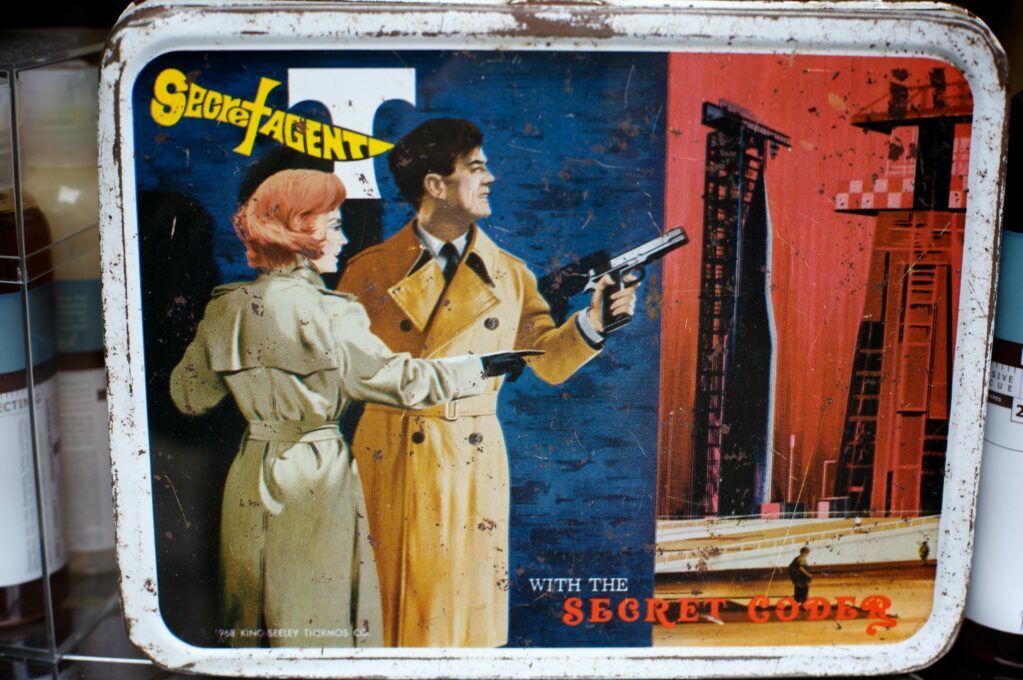One thing is for certain. The inside of the operative’s brain felt as if it were being tossed from wall to wall inside a collapsing tunnel. Each time he tried to right himself, the space re-framed, always at an angle. Vertigo set in as a response to a hallucinated levitation rather than to a sudden change in elevation. The operative felt like he was falling sideways onboard a ship. Or maybe this was how it felt to be driven by a vehicle over which you had lost control, to bank a race car off a steeply raked track and bounce back into the center of the funnel. He heard himself shouting out loud, “No, No!” but the ground kept moving, or else there was no ground beneath him at all. He was dancing on the walls outside his head while something inside of him watched. In these moments, he was inaccessible to himself.
An observer would think the operative to be insane, and it was perhaps some type of madness he was here rehearsing in the form of a panic attack. Or maybe, it was a “silent stroke.” This had been the second or third such rehearsal. They had come without warning. He had no idea how many rehearsals would follow before his head split open and something or someone unrecognizable came out. He had a headache that not only left him sleepless but also felt like sleeplessness itself when it encircles the brain. There was nothing he could take to ease the pain or to get himself back on track or rather off the track he was already on. There was nothing he knew to have taken that had put him there, that is, in the not-there in the first place. Was he on a train, a bus, or in a car, or was the motion he thought he was experiencing only simulated? He thought he was stationary when the attack began and his heart began racing, but how could he really be sure? Is this how he would die, and so soon? So soon before achieving what, where, or whom? The attacks would be his secret. The itinerary of the attacks was not his to keep, though.
At the time of the most recent attack, the operative had actually been fighting sleep, or at least that’s what he told himself in the moment. He was fighting it from the inside looking out. It was not as though he saw something looming ahead and waiting to overtake him, although perhaps it was and it might. There was no time for dread. The time for dread had been overtaken even before it could assert itself. He was strangely panicked by the state he was in, rather than by the state that was still to come.
The state he was in had to be Ohio, whose name named the self-mirroring of what is ahead of you, even as it is also behind. The operative saw himself coming and going and felt that if he did not break this elastic grip, he might continue to bounce back and forth endlessly in the role of anxiety’s double agent. “Where will I be when I am no longer me?” It’s an old road warrior question that has no real answer. The asking means only that it’s time to get out.
_
Spencer Golub is a professor of theatre arts, performance studies, comparative literature, and Slavic languages at Brown University. His books include the semi-fictional film memoir Infinity (Stage) and the Callaway Prize-winning The Recurrence of Fate: Theatre and Memory in Twentieth-Century Russia (University of Iowa). He is currently completing a book on Wittgenstein, anxiety, and performance behavior.
David Hancock has received two OBIE awards for playwriting (The Convention of Cartography and The Race of the Ark Tattoo). He is the recipient of a Whiting Writers’ Award, a Creative Capital grant, the CalArts/Alpert Award in Theatre, and the Hodder Fellowship. Hancock’s recent fiction is either forthcoming or published in Interim, Permafrost, Hunger Mountain, Blue Lake Review, Wild Violet, The Puritan, Timber, The Massachusetts Review, Ping Pong, and Amarillo Bay.
More of Golub & Hancock’s co-authored fiction has appeared in Chicago Quarterly Review, Corium, Pacific Review, West Wind Review, Bluestem, Inscape, The Medulla Review, and Crack The Spine, among many others.
Lead image: “Secret Agent With The Secret Coder” (via Flickr user Jeremy Brooks)

